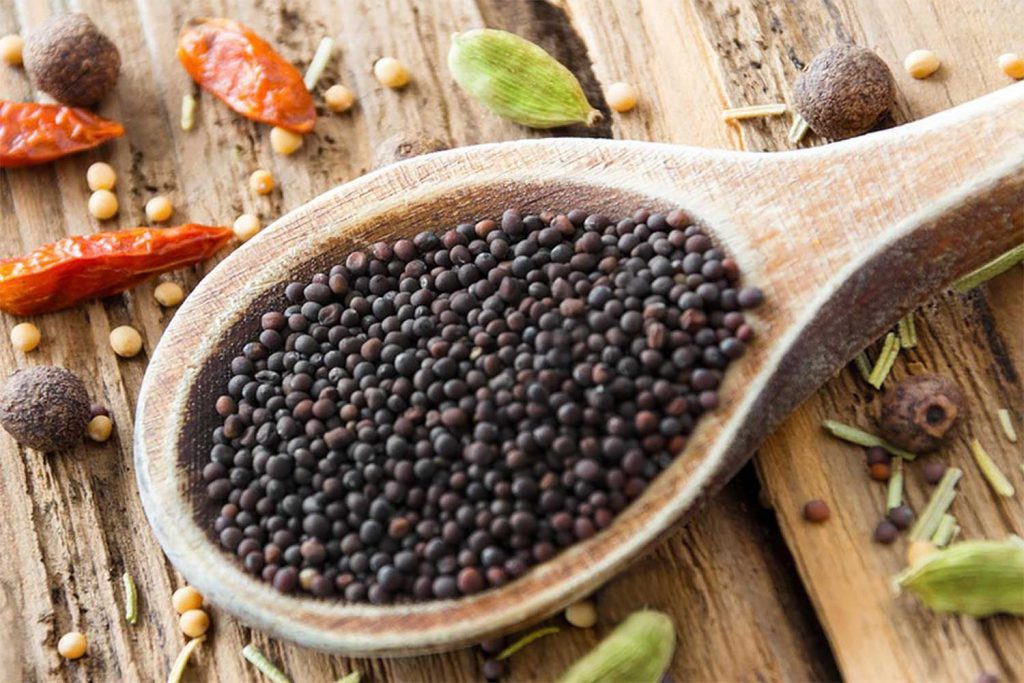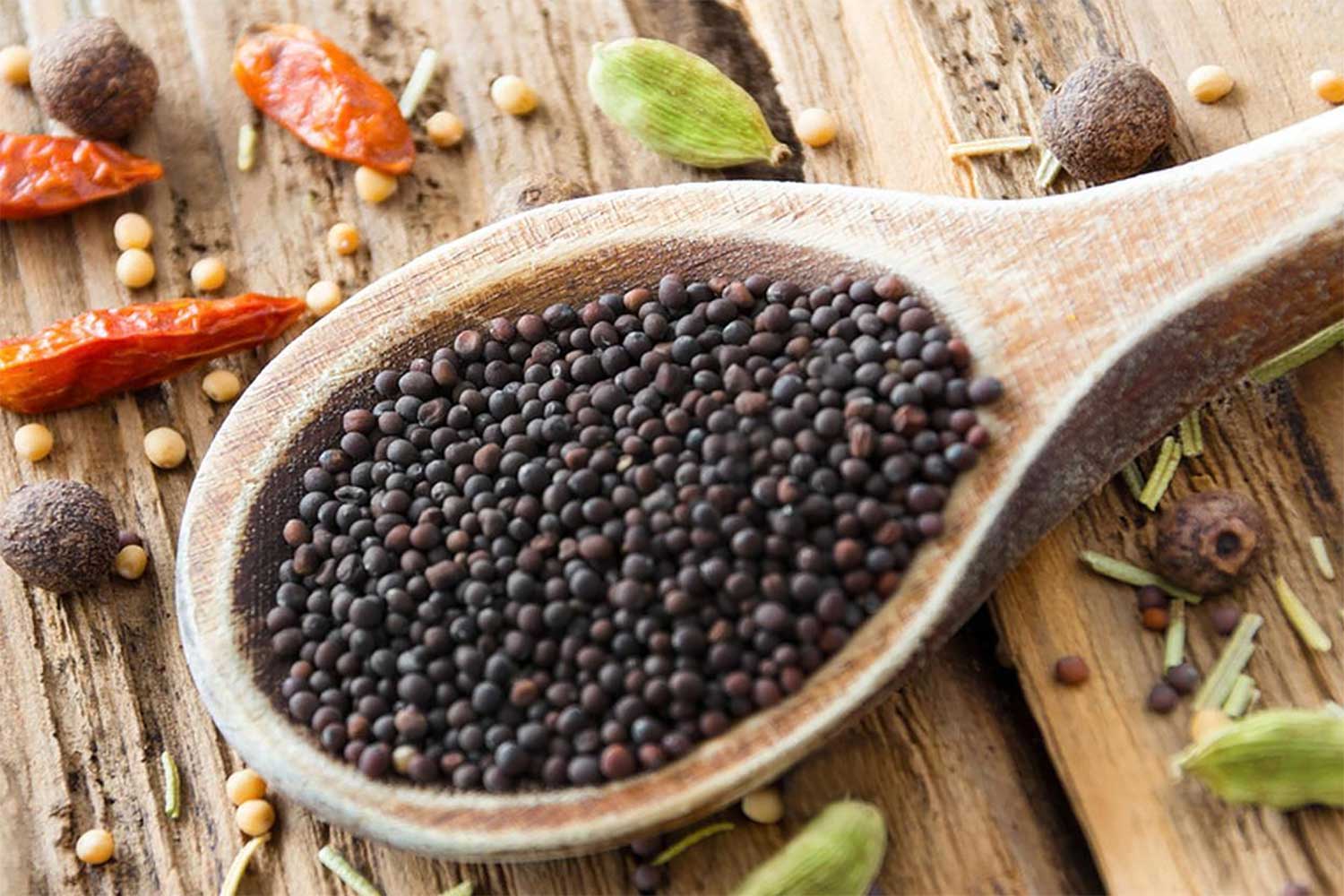What is mustard oil?

Mustard oil, which is produced from the seeds of the mustard plant, is a common ingredient in Indian cuisine.
Known for its strong flavor, pungent aroma, and high smoke point, it’s often used for sautéing and stir-frying vegetables in many parts of the world, including India, Bangladesh, and Pakistan.
Although pure mustard oil is banned for use as a vegetable oil in the United States, Canada, and Europe, it’s often applied topically and used as a massage oil, skin serum, and hair treatment.
Mustard essential oil, a type of essential oil produced from mustard seeds using a steam distillation process, is also available and approved for use as a flavoring agent.
Here are 8 benefits of mustard oil and mustard essential oil, along with some simple ways to use them.
Cardiovascular benefits
Mustard oil may help lower the risk of cardiovascular disease.
Mustard oil is rich in monounsaturated fatty acids. Researchers have consistently found that including monounsaturated fatty acids in the diet can reduce the risk of cardiovascular disease.
While mustard oil contains high levels of these fatty acids, avocados and olive oil contain more.
It is important to note that these potential benefits are likely to be very small, compared with other factors that influence cardiovascular risk. Consuming mustard oil will not compensate for a broadly unhealthful diet or a lack of physical activity.
Anti-inflammatory potential
Mustard oil contains a compound that could be useful for reducing inflammation: allyl isothiocyanate.
Inflammation is a characteristic of a wide range of health issues, and it can cause a host of symptoms. If allyl isothiocyanate can reduce inflammation, mustard oil could help treat these issues. However, there is currently very little evidence to support the idea.
Reagent
Distilled water, white vinegar, and vegetable oil.
Nutritional content
Mustard is a plant native to Europe. There are several varieties, and the seeds are ingredients in many foods and condiments.
Mustard oil is predominantly made up of monounsaturated fatty acids. In 100 grams (g) of mustard oil, there are:
59 g of monosaturated fatty acids
21 g polyunsaturated fatty acids
11 g saturated fatty acids
The allyl isothiocyanate in the oil gives mustard its strong taste and may contribute some health benefits. This compound is also present in foods such as horseradish and wasabi.
Extraction equipment
Grinder, constant temperature water bath, steam distillation device, oil-water separator, etc.
Method of extraction
Raw material → soaking → crushing → acid adjustment → hydrolysis → distillation → separation → preparation → mustard seed blending oil.
Extraction process
- Raw material. Choose mustard seeds with full grains, large grains and dark yellow color as raw materials.
- Soak. Weigh the mustard seeds, add 6 to 8 times of warm water at about 37°C, and soak for 25 to 35 hours.
- Smash. The soaked mustard seeds are ground in a grinder, and the finer the better, the mustard seed paste is obtained.
- Adjust acid. Adjust the pH of the mustard seed paste to around 6 with white vinegar.
- Hydrolysis. Put the pH-adjusted mustard seed paste into a hydrolysis container, place it in a constant temperature water bath, and keep it at about 80°C for hydrolysis for 2 to 2.5 hours.
- Distilled. The hydrolyzed mustard seed paste was put into a distillation device, and the pungent substances were steamed out by steam distillation.
- Separation. The distillate after distillation is an oil-water mixture, which is separated by an oil-water separator to obtain mustard oil.
- Deployment. Mix the mustard oil and vegetable oil according to the formula ratio and stir evenly, that is, mustard seed blended oil.
Physical and chemical properties
Mustard oil should be a light yellow oily liquid with a strong pungent pungent taste and tear-inducing properties.
Application
Mustard oil has the functions of invigorating Qi and dispelling cold, reducing swelling and dredging collaterals, and its blended oil can be used as a condiment for sauerkraut, mayonnaise, salad, curry powder, etc.
Mustard seed blended oil is loved by people for its unique pungent smell and spicy taste, and can relieve greasy and refreshing, and increase appetite.

